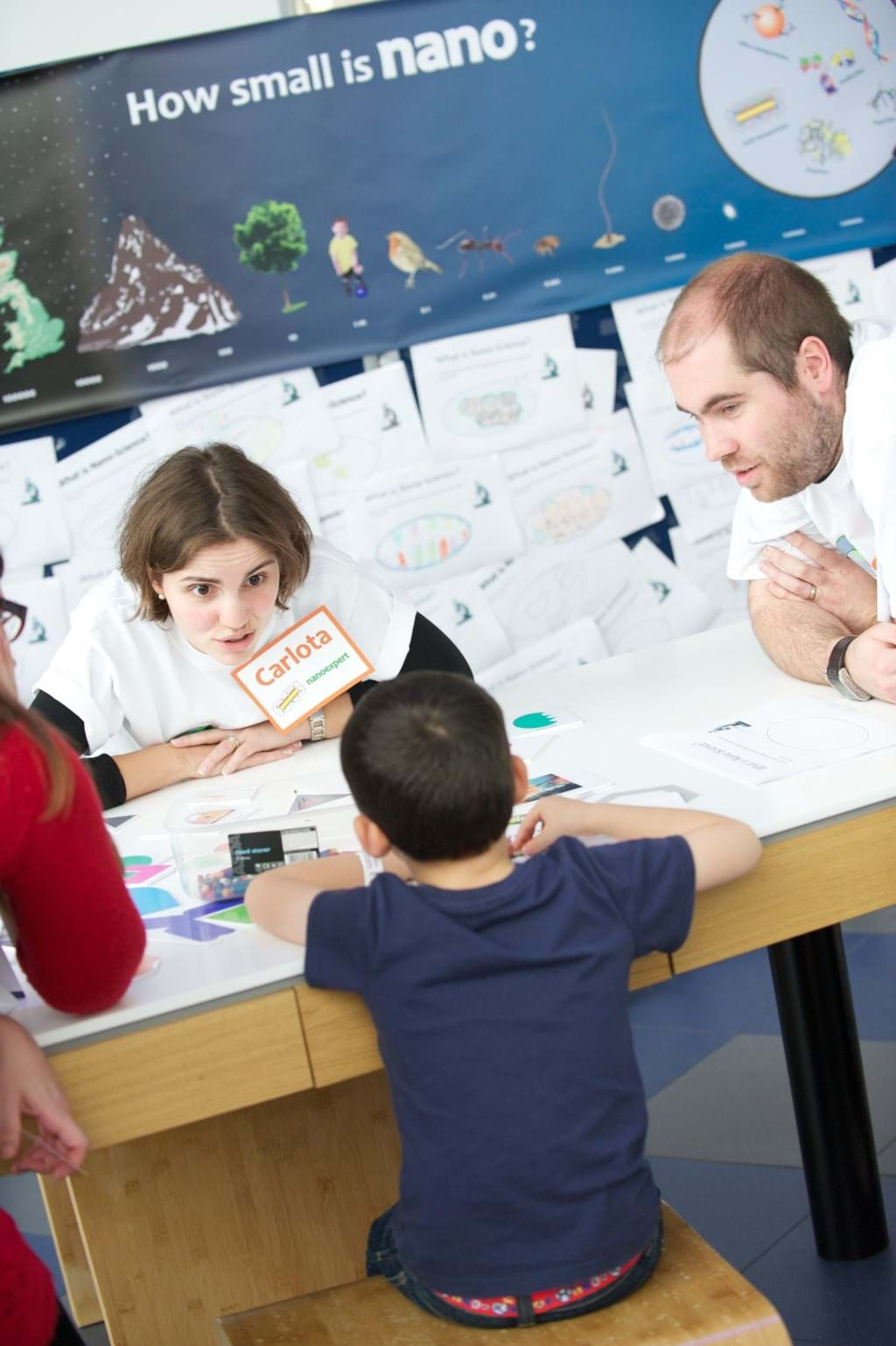Engaging the public through Really Small Science (Day 347)

9th May 2015
Outreach is a really important part of being a chemical engineer. Inspiring the next generation of engineers should be a priority for all of us.

I'm proud to see so many chemical engineers who are enthusiastic about shining a light on our profession.
I recently attended a presentation given by Dr Mark Haw, senior lecturer in chemical and process engineering at the University of Strathclyde in Glasgow, UK. He talked about a fantastic group of researchers who run nano-themed workshops to engage with schools and the public through 'Really Small Science'.
So I have asked Mark to tell us more about their nano-enterprise:

Name: Dr Mark Haw
Job: Senior lecturer in chemical and process engineering
Course: PhD Colloidal Physics, University of Edinburgh, UK
Employer: University of Strathclyde, Glasgow, UK
We started 'Really Small Science' with funding from the Royal Academy of Engineering in 2013. The original project was to run a four day event at the Glasgow Science Centre.
This involved putting together a team of ten researchers and academics; with a core of chemical engineers but also some from chemistry, electrical engineering and biosciences.
We undertook some public engagement training and developed simple, hands-on activities around our research. These were used at various events at the Science Centre over the October school half-term holiday. During this week, we engaged with around 2,000 visitors.
Having done all this great work, I wanted to find a longer-term way to keep the activities of our group going. Fortunately I was able to secure some funding to pay for a member of the team to continue to coordinate and develop activity. Joy Leckie carried out this role part-time while she finished her PhD in my group.
Joy did a fantastic job. She developed many more links with local primary and secondary schools and got us signed-up with science festivals. Based on this progress, I managed to convince the chemical and process engineering department at Strathclyde to establish the position of Outreach and Engagement Coordinator, which Joy now undertakes.

Through her role, Joy has trained more than 30 PhD students. She equips them with outreach skills; to enable them to visit schools, run events at science festivals and at the Glasgow Science Centre. The 'Really Small Science' group even visited a local children's hospital on their family day.
In the last year, we've engaged with over 5,000 children and adults through our initiative. We have even run events in collaboration with industry, such as Scottish Water and Babcock.
The impact on the chemical and process engineering department has been significant - most of our PhD students now have experience in outreach and many have caught the ‘public engagement bug’.
Many staff have also got involved, including administrative staff. It is an activity that really is brings everyone in the department together. Joy has also run training events for schoolteachers and new PhD students from all the different faculties of the University.

If anything we are victims of our own success; we receive many requests for activities and we’re struggling to keep up!
But it means we are spreading the word about chemical engineering and how it makes a difference to everyday lives of people. In particular, we talk to children who are making their first discoveries in the world of science and engineering.
Why do I think it’s important? Various reasons:
- Researchers need to tell people about what they’re doing and why it matters. We need to reiterate the fundamental importance of education and research to society.
- Researchers need to develop outreach skills and encouragement to think about the impact of their research. Active outreach is essential to put these skills into practice, so outreach activities in our department are really useful to PhD students and academics alike. Additional benefits include greater confidence, improved communication skills, creativity and an open mind.
- The funding agencies (research councils’ and government) focus on research impact is an important issue for universities. Outreach activity brings impact - many of the recent Research Excellence Framework (REF) impact cases were based around outreach.
- Outreach enables departments to engage with their communities. This helps us be less closed-off from the world. Many aspects of society depend on chemical engineering but many people know almost nothing about it. If the value of our work isn't understood or recognised then can be difficult to gain support. This is essential for our discipline to prosper; particularly, in communities that are under pressure from issues such as climate change, and political uncertainty.
- Researchers can be role models for both children and adults. This is important, especially for groups that tend to be under-represented in science and engineering, such as women, ethnic minorities, and people from deprived regions where university engagement is often minimal or non-existent. This is why we encourage our researchers to talk to people about their research; to tell them ‘this is what a chemical engineer looks like!’
We need to keep promoting the importance of STEM outreach and I'm very encouraged by the progress we've made so far. I hope that it continues to grow within chemical engineering university departments across the UK and around the world.